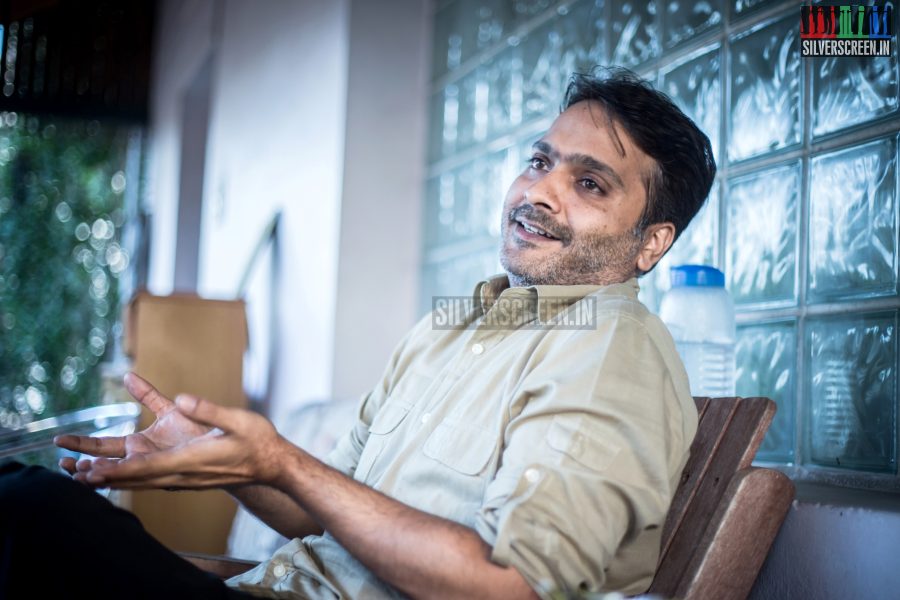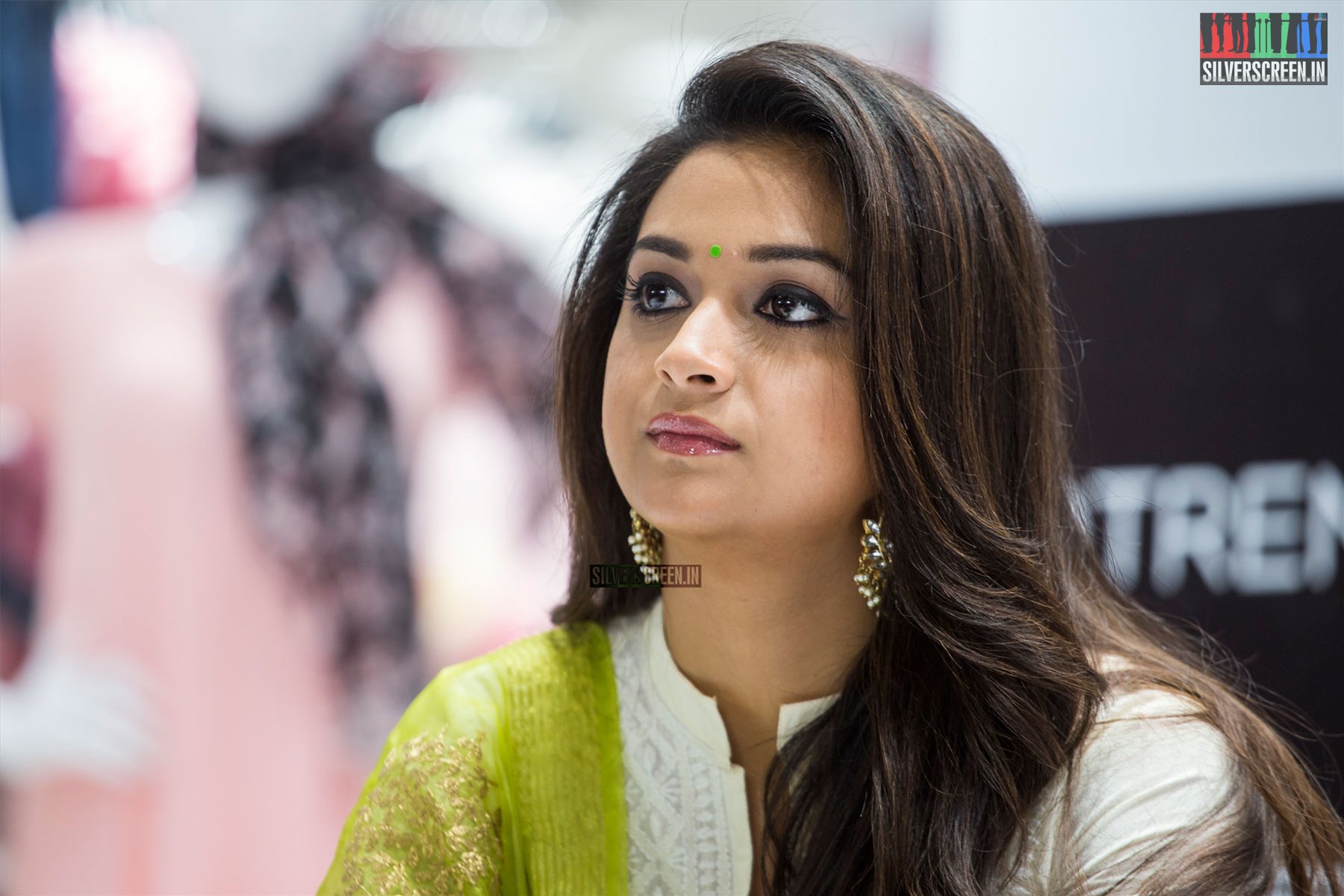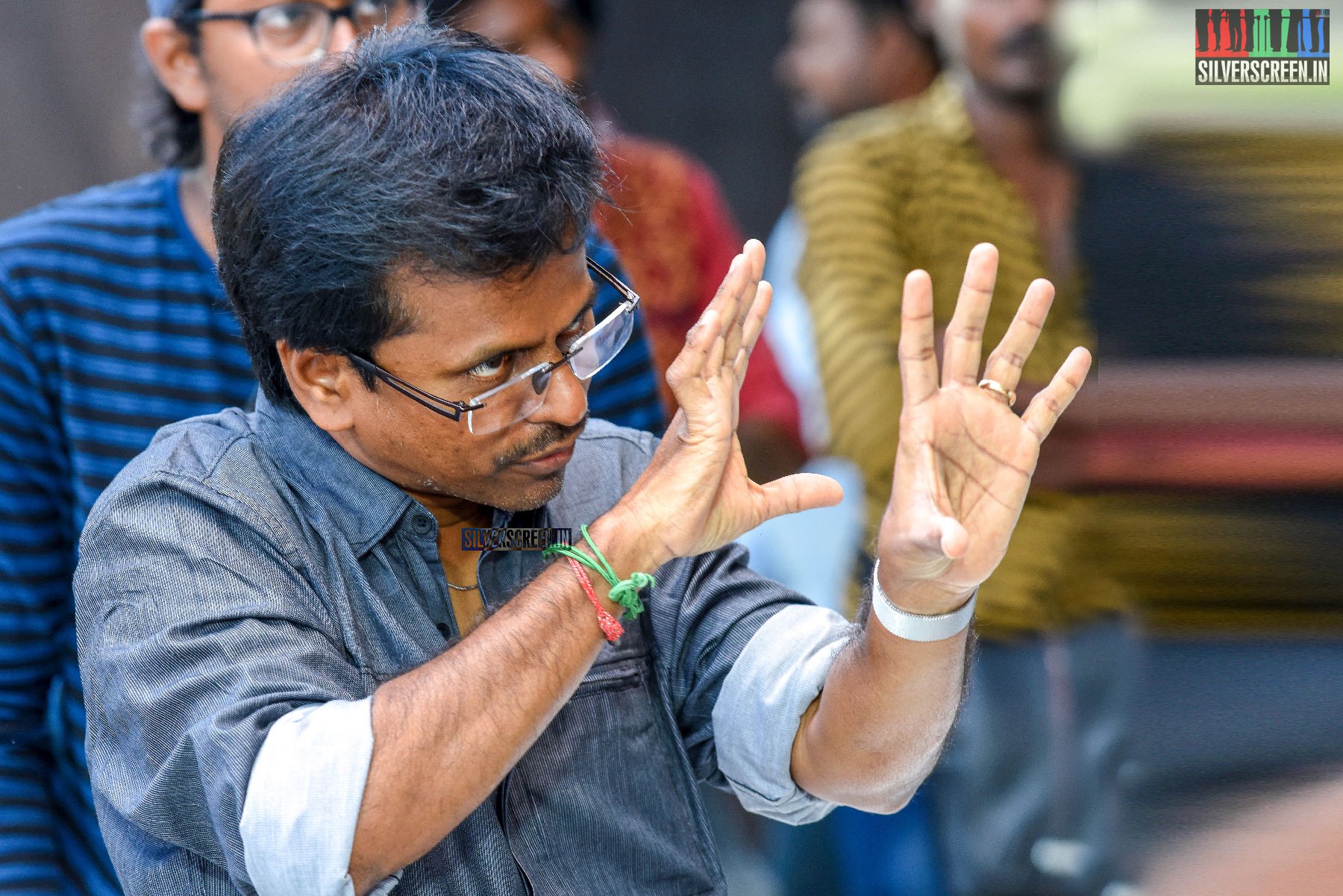1996
SP Charan had just returned from the USA with a degree in Business Administration.
He remembers the day quite vividly.
AR Rahman had called. To invite him to his studio.
*****
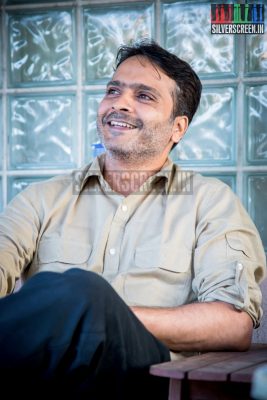
spc5
Thanga Thaamarai Magale…
AR Rahman offered first commentary.
“You sound just like your father. You don’t have an accent.”
Charan had responded, “If I’d had this opportunity before I went to the USA, I would definitely have had an accent. Because, I was only listening to Michael Jackson and western music. But when I went there, I rediscovered legends like Ilaiyaraaja, Yesudas and SPB. I am heavily influenced by them…”
Six months later, it dawned on him.
That little episode with ARR …
“Appa was the voice behind Thanga Thamarai Magale…”
*****
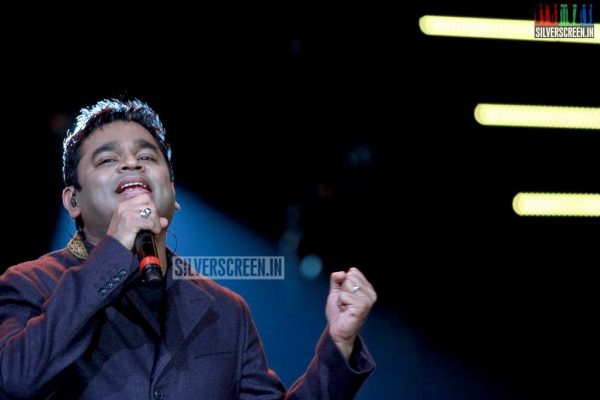
ar-rahman-news-7-global-concert-stills-027
Then, Mani Ratnam walked in. Charan had butterflies in his stomach. He had heard enough tales by then. Of how filmmakers like Mahesh Bhatt would sleep on same bench where he sat. A lot of top filmmakers camped at ARR’s studio. So Charan naively presumed Mani was there to just meet the composer.
A few minutes later, Rahman walked in and held a discussion with Ratnam about a song. That was when Charan realised he had been given another chance. He was given 20 minutes to learn and practice.
When the recording was finally over, he could hear the sounds of morning, and see shafts of sunlight through the curtains.
The recording had gone on for 12 hours.
Charan grabbed his copy of the movie’s audio soon after the launch, and flipped the jacket over to check if his voice has been used.
It was a pleasant surprise; he played the song in the car on the way back and noted with wonder that it sounded exactly like the notes that ARR played on his piano during the recording.
Kadhal Sadugudu from Alaipayuthey became a rage.
And, Charan had finally arrived as a singer.
He harboured a little disappointment, though. Endrendrum Punnagai and Mangalyam were more popular among the youth. However, he was quite satisfied when he watched the movie at a theatre. Girls were swooning, and Kadhal Sadugudu became a classic. “It still looks like Kadhal Sadugudu is the only song that I have sung. I keep reminding people that I have sung a lot of other nice numbers too,” laughs Charan.
*****
On a pleasant cold evening, I wait outside Charan’s office. It’s situated in a beautiful terrace at his residence. The tiny garden here is lovingly maintained. While the colourful blooms have our lensman in a tizzy, a tiny mongrel called Figo demands my attention.
Soon, Charan emerges from his office. He quickly clears the coffee mugs and ash trays on the table and sinks into a chair.
“Let’s do it,” he claps.
*****
Charan rolls his Rs.
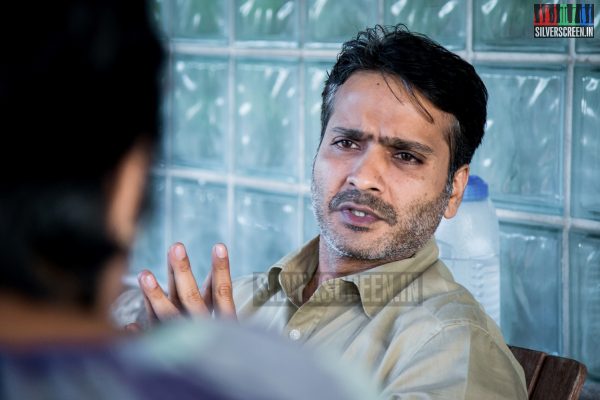
spc6
More often than not, Charan launches into interesting narratives. His tales are peppered with a lot of detailing, and sometimes, he slips in a wee pause before delivering punch-lines. His stories are naught without a twist. And, Charan is quite offhand about these surprises.
He also mimics effortlessly; Vairamuthu’s thick tongue this instance, and Ilaiyaraaja’s nasal lilt the next.
My conversation with him is quite eventful.
*****
“I was a very bad student. I could probably count the number of schools I didn’t attend in Chennai,” begins Charan, “I was a shy mommy’s boy. But I was boisterous with friends.”
He quickly supplies the details, impatient to get this particular phase out of the way. “I gave my parents a tough time, so they found a good Samaritan who agreed to keep me in the USA.” It was here that he finished his high school, earned a degree in Business Administration and completed a two-year course in Film and Television.
Unlike a lot of his mates who wanted to continue working in the USA, Charan made the decision to come back to India, despite having a hazy future in front of him. He was incurably passionate about setting up a technical team (which he calls a ‘unit’), and employing the film-making techniques which he’d learnt. “I later realised that it was very expensive, and I didn’t want to bother appa again. He already spent so much for my education in the US.”
Since he had no clear agenda, Charan began experimenting with everything that came his way.
*****
A year after he returned from the USA, and when trying to establish himself as a singer, Charan experienced a lull, career-wise. Min Bimbangal, headed by K Balachander’s son Kailasam, approached him then, to cast him as the lead actor in one of its serials, Oonjal. It was on the sets of Oonjal that Charan met Samuthirakani, who was an associate of Sundar K Vijayan, the director of the serial. “Kani would narrate a lot of stories during the break. I was immensely impressed by one of the stories, and decided to plunge into production,” Charan recalls. His banner Capital Film Works was then founded.
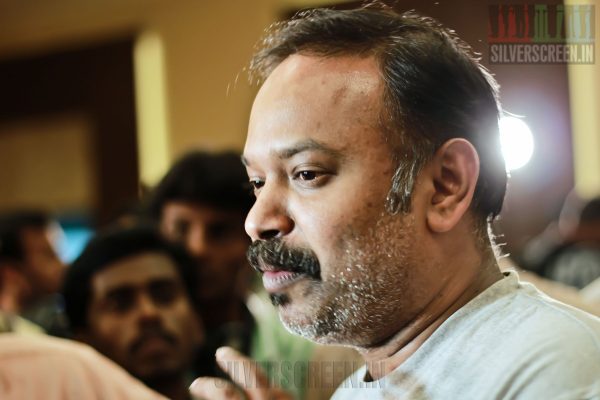
Biriyani-Press-Meet-with-Karthi-Sivakumar-Venkat-Prabhu-Mandy-Takhar-Premgi-Amaren
It also helped that Venkat Prabhu was in “crossroads”, too. Having just returned from London, his efforts in cinema turned futile. “We were singing together for Gangai Amaren’s orchestra. Prabhu wanted to run a magazine called Take 2. We were almost travelling in parallel,” explains Charan.
The shooting of Unnai Charanadaindhen was a touchy phase in their lives. When they pulled off a good scene, they would cry and hug each other from joy. “We could cry during sad scenes without glycerine. We often found ourselves asking, ‘Are we really getting somewhere?’ It was an emotional ride.”
Much to their dismay, Unnai Charanadaindhen, despite receiving positive feedback, failed to generate revenue.
*****
It inspired a different thought in Charan, though. He wanted to refrain from producing small-budget films, and shoot large scale ones with popular stars. That’s when the remake of the Telugu movie, Varsham happened.
Mazhai, starring Jayam Ravi and Shriya Saran, wasn’t received well either. “When the small film didn’t do well, I managed to produce a big-budgeted film. When that failed too, I had no clue about what I should be doing.”
But Charan was pragmatic enough to not stop trying. “I strongly believe in not giving up what I have started. I am a Capricorn. I take that too hard. I knew production was my calling, and I didn’t falter at it. It’s just that I had a clean slate again,” he observes. He continued to listen to a lot of scripts. “I was waist-deep in trouble. I had to act soon. I knew I would either go deeper or swim out. But to swim out, I had to produce films. It was the only option.”
That’s when Venkat Prabhu came up with a horror story, which he wanted Charan to produce. Venkat Prabhu, who was not a filmmaker then, reckoned Charan should find a director to convert his story into a film. “When we travel together, we would always make Prabhu read stories from Tamil magazines. He would give a different voice to each character, and narrate it with such commitment. We would crack up. I told him he had the skill and he must utilize it. Thus, he became a director,” recalls Charan.
The budget for the film soared up to Rs 3 crores. The movie also demanded a lot of CG work and night shoots. Charan realised it wouldn’t materialise. The horror was dropped. But the duo found a story that would fit into their budget. Philip, a friend of Venkat Prabhu and Charan, suggested that the lives of boys who play gully cricket, would make for a great film. “We found it very interesting. Without even knowing the basic principles of screenplay, we wrote the script.” They were not aware of the winner in hand.
Chennai 28 was made with Rs 1.5 crores.
When the movie was ready, it was difficult to market it. “We couldn’t sell the film,” says Charan. Even the regular distributors were reluctant to buy a film that had no star cast. Charan and team were desperate. But, they had no other option than to release Chennai 28 during the World Cup season. “Every distributor wanted to watch the film before buying. I had already hosted 30 screenings. Those days, a screening at Four Frames Theatre would cost Rs 7,000. We were overshooting the budget.” Finally, the word spread, and a group of friends pooled in money to acquire the distribution rights. “Except North and South, we had a first-time distributor in every area.”
It was like having a baby, Charan says fondly.
*****
Chennai 28 received a grand welcome, and was even listed by The Guardian as one among five must-watch films based on cricket. The film also gave hope to small-time producers. “A lot of producers told me that I was an inspiration for them to make small films. It changed a lot of lives.”
*****
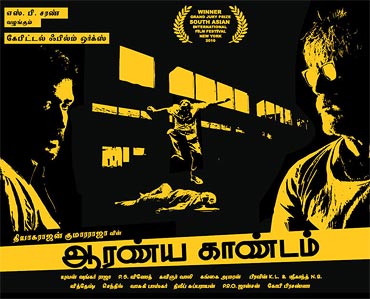
aranya-kandam
“Kunguma Poovum Konjum Puravum didn’t work. Naanayam had a good opening. Aaranya Kaandam was critically acclaimed, but it was not profitable. Production is still a struggle. However, if I had succeeded in my first film, I wouldn’t have had the appetite to learn as much as I have now.”
*****
“My team thinks I am a pain-in-the-ass,” Charan laughs. “That’s because I am hands on.”
“If the script is perfect, I wouldn’t poke my nose in it. If it isn’t, I wouldn’t hesitate to sit at the edit table. As much as I am a pain, I also give them enough liberty. This is my modus operandi. And, you must note, I have been working with beginners all the time. I am putting myself at risk. However, I treat myself as a newcomer with the team every time.”
Charan’s next venture – Moone Moonu Vaarthai – which releases this month, is replete with first-timers. The actors, cinematographer and composer make their debut.
*****
As a producer, Charan says Chennai 28 is close to his heart. “Aaranya Kaandam makes me the proudest. That’s the kind of film that I have come to make.”
He also firmly tells me that he is a producer first. “I think I am good at it. Then, I am an actor. And thirdly, I am a singer.”
*****
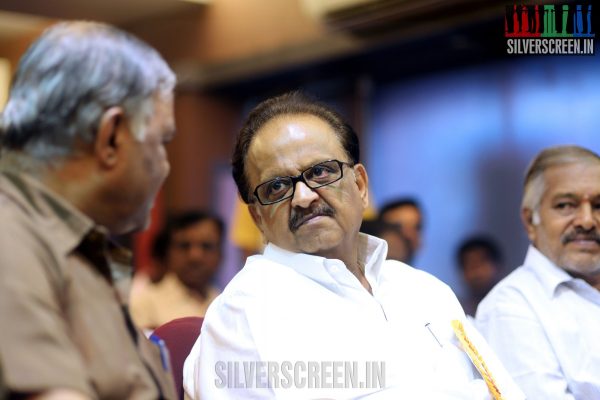
8th-Annual-Meet-of-the-SPB-Fans-Charitable-Foundation-at-Arkay-Convention-Centre
“I have been listening to him since I was born,” Charan shrugs. Everyone on his father’s side of the family sings. Charan’s great grandfather was a singer, and his grandfather was a Harikatha exponent. “My mother is a big fan of Mohammed Rafi. In fact, she is a bigger fan of Rafi than my dad. And, that grounds him,” Charan laughs heartily.
His mother then introduced him to Rafi. “I saw a lot of similarities between Appa’s and Rafi’s singing.”
Family gatherings were not without those spontaneous bursts of music. “We always sing old songs. When I was a kid, I would sing the entire album of Sankarabharanam, as my aunt bathed me,” Charan recalls.
Despite being a part of a family that had talented singers, Charan was strangely reluctant. “I started singing very late. And, I was shy.”
However, when the renowned musician, OP Nayyar dropped by their house, he insisted on listening to Charan. “It was a thrilling moment,” Charan narrates. “OP Nayyar walked in wearing his signature feathered hat. He settled in the hall with his harmonium, and requested everyone to sing.” Charan was the last one, and he was jittery. He took his father’s recorder, rushed to the toilet, quickly recorded a number and handed it to OP Nayyar. “Appa had always played OP Nayyar’s songs. Like Kashmir Ki Kali. But I was still very nervous. I came back from the bathroom, gave him the cassette and asked him not to listen when I was around. A very memorable experience.”
*****
In the mid 90s, Charan founded a band – The Next Generation – along with Venkat Prabhu, Premgi Amaren, and Yugendran. “We were the second-generation bums with big fathers. We didn’t know what to do with life. But Gangai Amaren tried doing a film with Venkat Prabhu in the lead. It was called Wanted. Premgi was to direct it. Can you imagine? Premgi as a director. Think about it. My God!” he chuckles.
The band had a rocky run too. “It’s so funny when we think of it now. I am so happy that we are stable and doing well now.”
*****
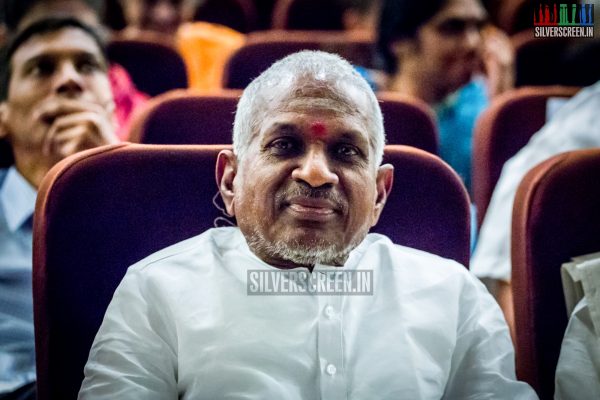
Ilaiyaraaja Launches a Dance Musical Swappnam HQ Photos
“Paaduviya?”
Was the first question that Ilaiyaraaja wanted an answer to. Before Charan could respond, the composer had added, “Nee paada nalla naal edhukku thedanum. Nee vandhuta, idhu thaan nalla naal.”
It was a duet song that Ilaiyaraaja intended to record with SPB’s and his own voice. However, he reserved a few notes for Charan. “The process of recording was nerve-racking. I was facing the microphone for the first time, with two stalwarts by my side. I was thinking, ‘Dude, you can’t do this to me!’ For lack of a better word, I was shitting bricks,” Charan laughs.
The name of the song, which was featured in a Tamil film called Punniyavathi, escapes Charan’s memory. However, Raaga.com has that documented. Unakkoruthi. Ilaiyaraaja has credited him for rendering the chorus.
Ilaiyaraaja continued to offer more opportunities to Charan, who sang quite a few songs in his compositions in Kannada. “I was flying. My sister, Pallavi dreamed of singing for Raaja sir. Lo and behold! I come down from the USA, and sing for him in a month. A lot of people heard the songs, and called me to dub and sing for small-budget films. Appa didn’t make any recommendations. I tried getting more chances on my own.”
*****
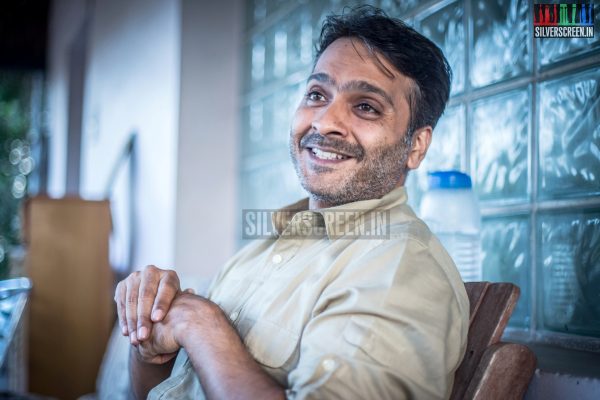
spc12
For instance, Charan says, when Vijay TV felicitated SPB with Life Time Achievement Award, the song Oh Shanthi from Varanam Aayiram which was sung by SP Charan, was played in the background.
“Should I be happy about it?” chuckles Charan. “Because of the ambiguity in my voice, it doesn’t get recognised. And, people often complain saying I don’t sing much. It’s not a choice. Composers don’t call me.” However, when he is invited, Charan says, he is called to sing “that one memorable song. I never took off as a singer. But I keep getting chances to sing rare, nice songs.”
Despite all that, Charan states, “I am still happy as a singer, proud as a producer, and I know I am a good actor. I can do whatever I want to do.”
*****
Charan’s favourite, lesser-known songs.
1. Vaaraai En Thoziye from Arasiyal
Composed by Vidya Sagar, the duet featured Shubha Mudgal, Swarnalatha, and Charan. “I had to do crude singing though. It was a beautiful song. I like it more because Vidya Sagar had given a great mix of Hindustani and Sufi.”
2. Jumbo Idhu from Rishi
“Again, the song didn’t become popular. It’s one of the nice numbers of Yuvan.” Charan rendered the song with Sujatha.
Recommended
3. Punnaigaikku Neram from Appu
“It was a very difficult song. The range was too high. Sukhwinder Singh had sung initially, but Vasanth wanted more lyrical clarity. And, I was called. I love the visuals.”
4. Kadavul Thantha from Maayavi
“That’s the last track that I sang for Devi Sri Prasad. A nice melody.”
*****
The SP Charan interview is a Silverscreen exclusive.
